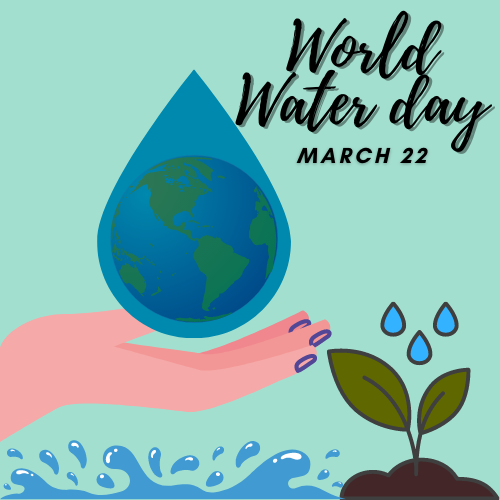Mar. 22 is World Water Day and this year’s theme is Valuing Water.
“Water is fundamental to human health and a key social justice issue. Lack of access to safe drinking water and adequate sanitation is one of the greatest human health and environmental threats facing the world’s most vulnerable,” the Water Institute stated.
Each year on Mar. 22, the University of Waterloo’s Water Institute hosts a World Water Day celebration highlighting the importance of water for human, environmental, and economic health, while raising awareness of the 2.2 billion people living without access to safe water. The day is about taking action to tackle the global water crisis and to support the achievement of the UN’s Sustainable Development Goal (SDG) 6: water and sanitation for all by 2030 and the many other SDGs linked to water.
This year’s celebration was best experienced in the Water Institute’s interactive workshop online. The big question being; what does water mean to you? This event featured great speakers like Ogamauh annag qwe (Sue Chiblow) who shared knowledge on Anishinaabek N’bi pedagogies that ‘we are water’, ‘water is life’, ‘water has a spirit’, ‘water is medicine’, and is the ‘lifeblood of Mother Earth’. Other great speakers included Dr. Ayana Elizabeth Johnson, a marine biologist, policy expert, and co-founder of the All We Can Save Project. Johnson co-created the Blue New Deal for Senator Elizabeth Warren as a roadmap for including the ocean in future climate policy.
The Blue New Deal operates alongside the idea of the Green New Deal championed by US Congresswoman Alexandria Ocasio-Cortez. Focusing on the ocean is paramount in combating the immediate consequences of climate change in different facets and disciplines. Among many other issues, the ocean has absorbed 93 per cent of the heat trapped by greenhouse gases. Warming of the waters disrupts migration patterns for fish that are overfished and over exploited. Warming also bleaches coral reefs and fuels sea level rise. Like forests, polar ice caps, and biodiversity in local ecosystems, oceans serve as a pillar for combating climate change and for measuring the Earth’s planetary boundaries. 71 per cent of the planet is covered by the ocean and the future of humanity is directly tied to the severity of threats of the crisis of water.
































